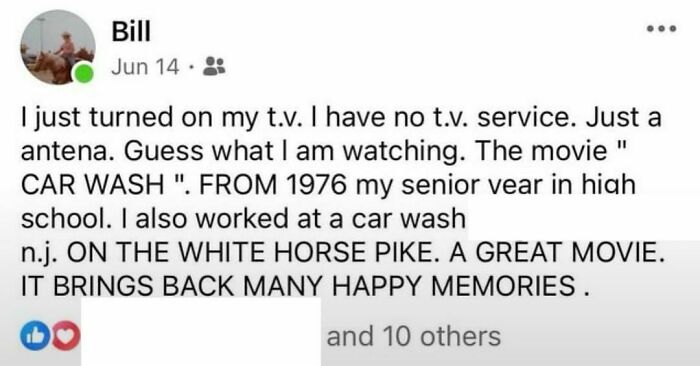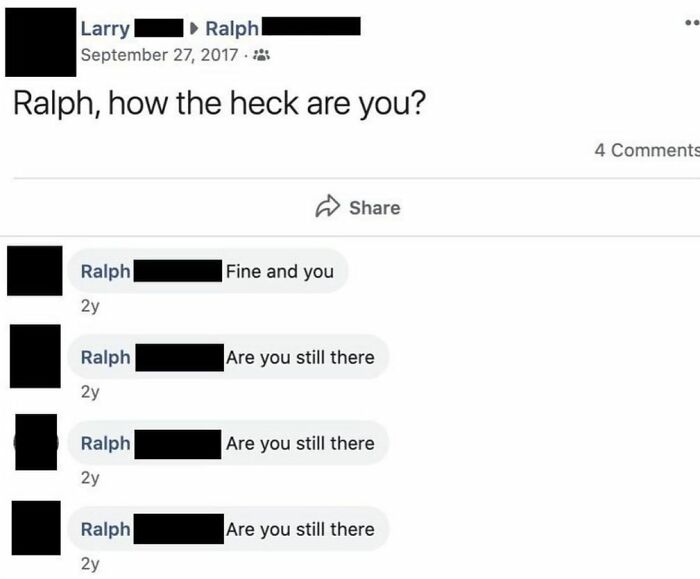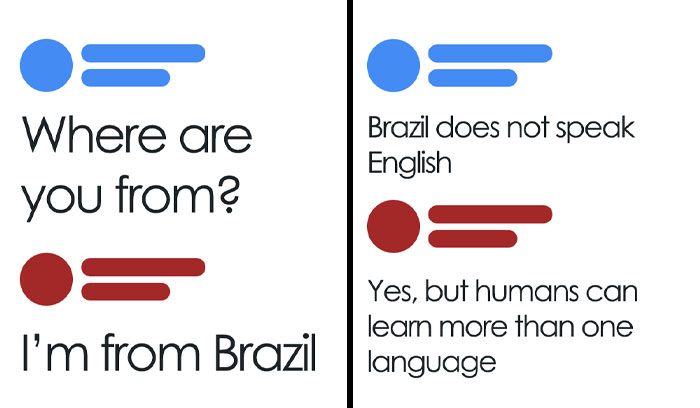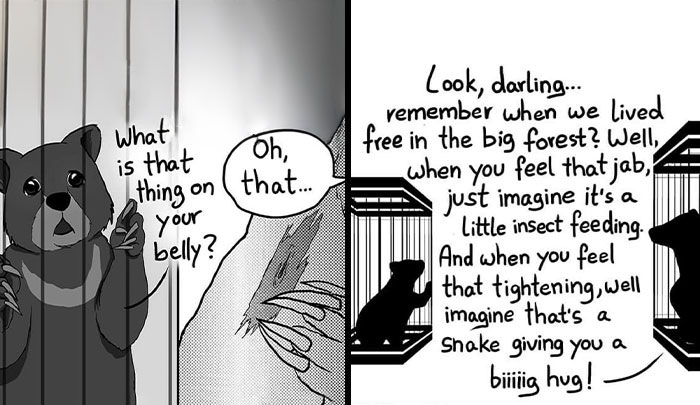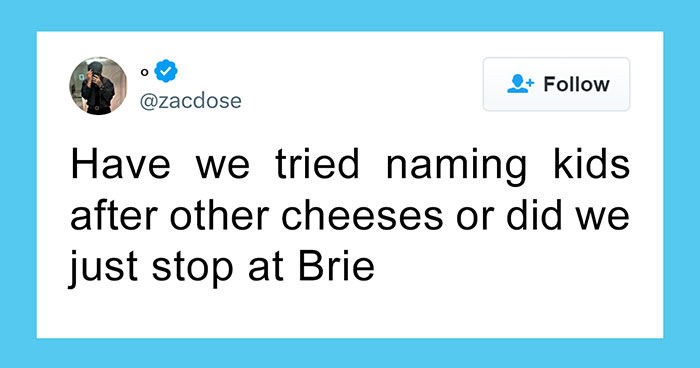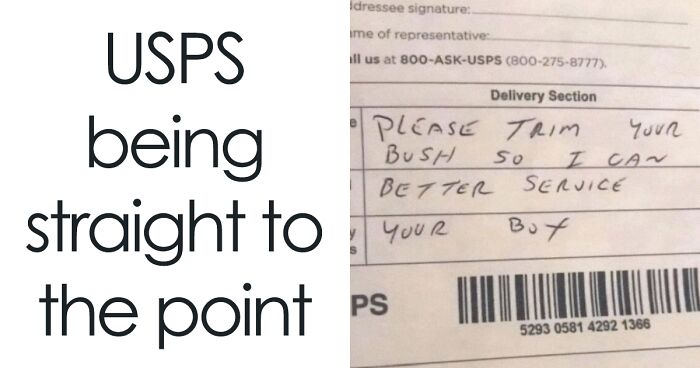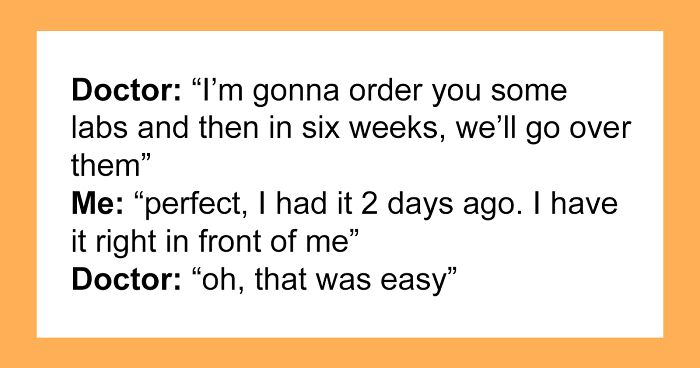
35 Times Older People Failed At “Surfing The Net” But Provided Some Comedy Gold (New Pics)
The internet became available to the public more than 30 years ago in 1993. Some of us weren't born yet, our parents were teenagers or young adults, and our grandparents were well on their way to middle age. They didn't grow up with it like we did, and their learning process was sometimes pretty hilarious.
It still can be to this day. There's an account on Instagram that collects the funny attempts older folks make at posting on the internet. Their efforts don't always go to plan, as you can imagine, and, whether intentional or not, occasionally provide some comedy gold.
Bored Panda reached out to the creator of the Old People Web account and they kindly agreed to tell us more about the page. We also contacted Generations on Line CEO & founder Tobey Dichter, who told us more about why learning the ways of the internet is important for older people and what tech companies should do to make it easier for them.
This post may include affiliate links.
The creator of Old People Web started the account back in 2019 and is the only person behind it. The creator's name is Sam, and they tell us that the idea to create the page came to them in 2018 during a particularly hard time. "During that time, there wasn't a whole lot of 'why' to much of anything I was doing," the owner of the page tells Bored Panda.
"I've kept it going because people seem to enjoy it. People submit stuff every day. These days, I think laughter and finding any reason to laugh is about as good as it gets for most of us," Sam tells us.
One way or another, the internet makes us all equals eventually. As a millennial, Sam is aware that one day, someone else will be posting similar things about us and how we're no longer "with it." "They sort of do already," they admit. And it's true: doesn't Gen Z ridicule our taste in fashion and interior design enough already?
You might be chuckling at the online faux pas in this list and think that older people have poor computer literacy, yet you would be wrong. 73% of Americans over the age of 65 use the internet and know how to do it well.
The founder of Generations On Line, an organization helping older people gain confidence with their online skills, Tobey Dichter, tells Bored Panda that learning to use the internet benefits older adults immensely.
"Because the internet has become the connection to resources, information, friends, and family, it is no longer a luxury," she tells us. "The internet is an absolute necessity, particularly for people who are less mobile."
However, older people might indeed be averse to using the internet, particularly social media. Dichter says that each specific technology (smartphones, apps, social media) comes with its own challenges.
"Older adults, particularly [those] who have grown up with respect for tools, are afraid of breaking something, so they are not as bold as other generations in just trying things out," she explains.
Whereas the younger generations use the internet intuitively, it's not the same for older adults. "Icons, gestures, and the hamburger of three little lines are not intuitive," Dichter observes. However, after that first step, they can be as good as any young person. "Once an older adult is taught, they are as conversant as any other generation. It's like learning a language; not just the vocabulary, but the idioms and proper usage," Dichter offers a comparison.
There are some things tech companies can do to make the learning process for older people easier. "Be more explicit, have fewer flashing pages," Dichter starts naming some. "Keep colors in high contrast. Indicate where additional scrolling is required. In short, don't assume everyone understands the current shorthand. A built-in stylus would help elders, too," she adds.
The founder of Generations On Line also shares a funny story about a woman who used their program to learn how to use email. "[She] surprised her son. He wrote back to the care center where she was staying: 'I was so excited to get an email from my mother, but please tell her not to write in all caps; she's been yelling at me my whole life!'"
Dichter shares one more funny anecdote about one of their 'graduates.' Part of the training that Generations On Line offers is teaching older people how to use search engines. When one particular gentleman learned to do that, the first thing he wrote in the search bar was: "Richest widow in town."
One of the main reasons why older people eschew technology is that the folks at Silicon Valley operate with a bias toward the youth. Researcher Bran Knowles found that many older people say they don't use certain devices or platforms because of "misalignment of values and products." According to Knowles, tech companies don't see older people as valid stakeholders.
The thing that Knowles found in her research is that, for many older people, resisting the use of one technology or another is a value-based choice. As Slate writes, one senior uses TurboTax to trade on the stock market and file taxes. But when it comes to the iPhone, they're more reluctant. "It's like a tether," the person said. "When you want to do some deep thinking and not be interrupted, smartphones are no good."
So, how about these older people being funny on the internet? After scrolling through this list, I don't think I would have the courage to post some of the things the older folks did, so, kudos to them! Also, if you'd like to see more, check out our previous post about the Old People Web page!
My first thought was "made by nana" so im guessing wannabee?
Load More Replies...Some of these are not necessarily old people. Also worth noting that all the pioneers that made this possible - Gates, Jobs, Wozniak, Berners-Lee - were all born 1955 or earlier. I suspect they were better at technology than any of today's kids!
Most of these weren't fails. The posters messages got across in exactly the manner they intended.
Some of these are not necessarily old people. Also worth noting that all the pioneers that made this possible - Gates, Jobs, Wozniak, Berners-Lee - were all born 1955 or earlier. I suspect they were better at technology than any of today's kids!
Most of these weren't fails. The posters messages got across in exactly the manner they intended.

 Dark Mode
Dark Mode 

 No fees, cancel anytime
No fees, cancel anytime 


















